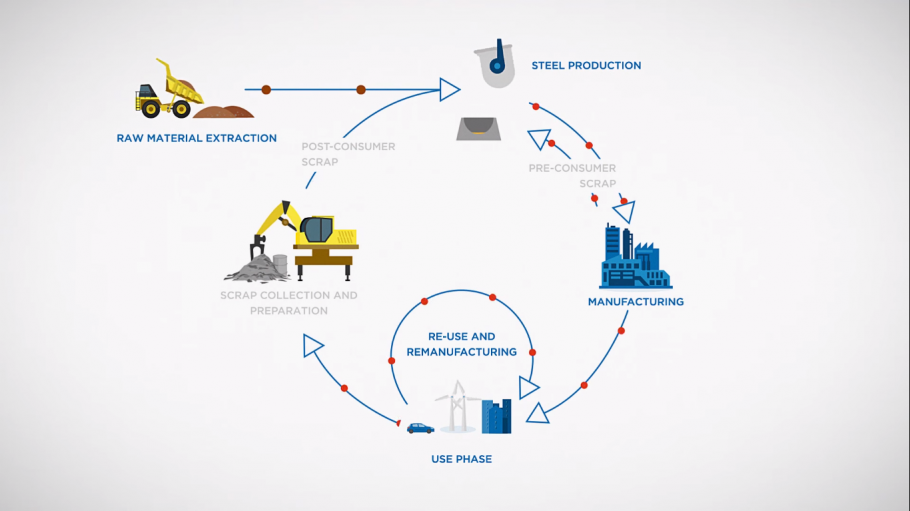
Issues » Environment » Life-Cycle Assessement (LCA)
Life-Cycle Assessment (LCA)
Recent content
Life Cycle Inventory (LCI) data

Picture credit: worldsteel.
LCA is used to evaluate the whole lifecycle of a product, starting with the extraction of the raw materials at the very beginning of the product life and ending with recycling or depositing at the end of the cycle.
A coherent method for working out the ‘overall’ impact of a product ensures a level playing field when determining products’ environmental performance.
This is important, for instance, in automotive applications. For instance, by favouring ‘lightweight’ materials per se – the production of which can cause more CO2 emissions than the materials may save in the terms of tailpipe emissions – more is lost than gained. Recycling and re-use of materials is another aspect of sustainability and climate protection that cannot be evaluated by measuring use-phase emissions only.
Life cycle thinking is everywhere to be seen in product policymaking, and the EU’s 2020 Circular Economy Action Plan further consolidates the critical role of Life-Cycle Assessment
A standard and robust assessment methodology is essential to the consistent application of life cycle thinking in product policy. The Commission’s Product Environmental Footprint (PEF) methodology standardises the assessment and communication of environmental claims by manufacturers, and could help support product policies that take a lifecycle perspective. EUROFER has been supporting the continuous improvement of environmental impact indicators.
The success of this legislation relies on numerous related delegated and implementing acts to be released, the revision of already existing ones and their mutual coherence. The European steel industry is ready to assist the European Commission in this endeavor.
Sector coupling via lifecycle CO2 credits for the use of low CO2 steel as 'eco-innovations' in the automotive industry.
The European Directive on End Of Life Vehicles (ELV) has proven during the years to be a useful instrument for setting up a proper management system aimed at managing vehicles and their parts at their end of life stage.